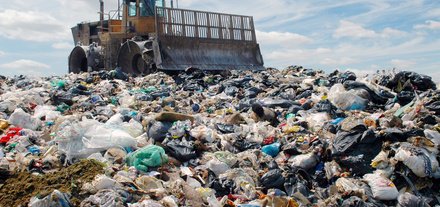You are here
World Bank: 'Technical and engineering solutions not a silver bullet' for growing waste problems
Primary tabs
Dive Brief:
- The World Bank reports that the following five countries generate the most waste in the world:
- United States: 642,700 metric tons per day
- China: 520,548 metric tons per day
- Brazil: 149,096 metric tons per day
- Japan: 144,466 metric tons per day
- Germany: 127,816 metric tons per day
- More than half of the world has no regular trash collection system, and unregulated or illegal dumpsites account for more than 40% of the waste worldwide, as reported in the Los Angeles Times. This is a big problem considering that 1.3 billion tons of waste are generated globally every year, and that tonnage is projected to reach 4 billion by 2100, according to Ede Ijjasz-Vasquez, senior director for the World Bank's Social, Urban, Rural and Resilience Global Practice. Much of the pending increase is predicted to occur in poor African and Asian cities where the figure will likely double.
- Cities in developing countries devote 20% to 50% of their budget to waste management, with South Asia and Africa more efficiently collecting their waste than many countries, according World Bank statistics.
Dive Insight:
Waste management is high on the list of United Nations concerns, and the World Bank has invested about $4.5 billion to support 329 solid waste programs around the globe since 2000. They've recognized that there are cities that simply cannot stay on top of their trash, largely due to urban expansion and industrialization that goes hand in hand with that expansion.
As this trend occurs, developing nations are typically spending more on collection than on disposal, but to little or no avail.
Even the US, with its relatively large infrastructure, is not immune to the impact of accumulating trash—although most Americans have no idea of the problems' magnitude. They typically see minimal red flags since most municipalities charge a flat fee for trash collection rather than one based on volume.
"By taking our waste away from us so efficiently, it makes us more inclined to dispose more," said Joshua Reno, an assistant professor of anthropology at Binghamton University, as reported in the Los Angeles Times.
And technology is not necessarily the answer. "Many people think it is just about getting an incinerator and it’s all fixed," said Ijjasz-Vasquez to the Times. "This is part of the solution, but technical and engineering solutions are not a silver bullet."
What is needed he said, is a viable collection process. Some industry experts also call for a system that makes residents more aware of and accountable for their accumulating garbage, such as pay-as-you-throw (PAYT). Some municipalities have adopted this pay-by-volume model and more are considering it, hoping to open peoples' eyes to how much garbage they generate, while bringing in revenues.
In Sierra Leone
Because people in the country are unable to controle the gabage, this has course the rapid problems the slums community have being experiencing especially during the rains when their is lot of gabage coming from the main drainage that are connected to the drainage system in the coutry. This has cause a lot of damage to people's property, the health problems and sometimes living people homeless when the rains come too heavy.
Story By Mohamed S
Full source from:http://www.wastedive.com/news/world-bank-technical-and-engineering-solutions-not-a-silver-bullet-for-g/418010/




Recent Comments